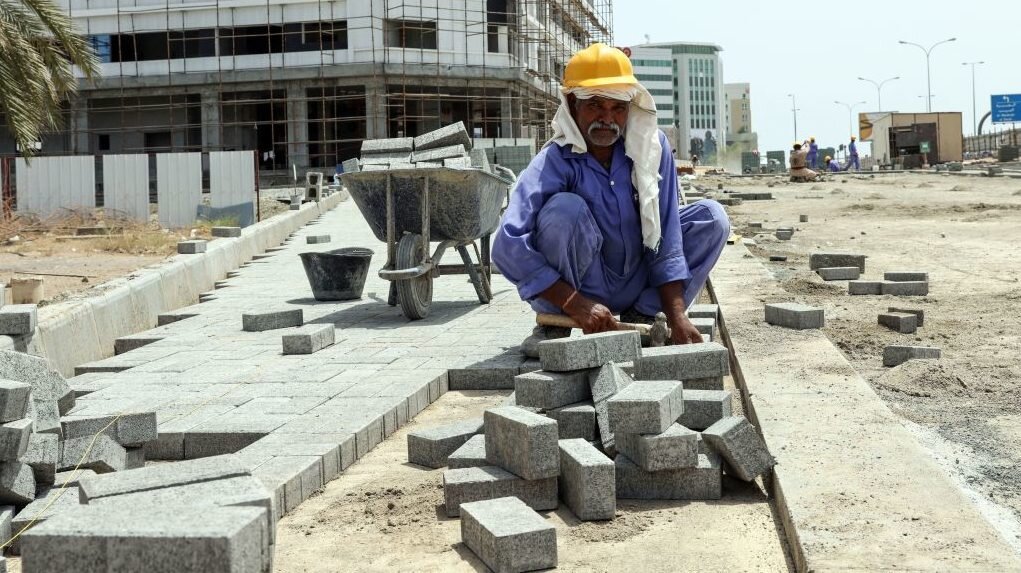The Gulf region, comprising countries like the UAE, Saudi Arabia, Qatar, Oman, Bahrain, and Kuwait, is home to millions of expatriates who contribute significantly to its development. With attractive economic opportunities, modern infrastructure, and tax-free income in many countries, the Gulf has become a prime destination for foreign professionals and laborers alike.
This article explores the life, opportunities, challenges, and lasting impact of expatriates in the Gulf region.
Understanding the Gulf's Expatriate Landscape
Expatriates—people living outside their native country—make up a substantial portion of the Gulf’s population. In some states like the UAE and Qatar, they constitute over 85–90% of the total population.
Expat communities in the Gulf are incredibly diverse, including:
- Skilled professionals (engineers, IT experts, doctors, teachers)
- Semi-skilled and unskilled laborers (construction, hospitality, domestic help)
- Entrepreneurs and investors
- Diplomats, researchers, and NGO workers
This demographic diversity creates a unique cultural and social environment in cities like Dubai, Doha, Riyadh, and Manama.
Economic Contributions: A Backbone of Gulf Development
Expatriates have played a major role in transforming the Gulf economies from oil-dependent nations to diversified hubs for trade, tourism, education, and technology.
Key areas of contribution include:
- Construction: Laborers from South Asia and Africa have built iconic skylines and mega infrastructure.
- Healthcare: Doctors, nurses, and technicians from the Philippines, India, and Europe fill critical gaps in healthcare systems.
- Technology: IT professionals from India, Pakistan, and the West drive innovation in smart city projects and fintech.
- Education: Expat teachers form the backbone of private and international schools.
From blue-collar to white-collar roles, expatriates have helped build the modern Gulf.
Daily Life: Comforts and Cultural Differences
Many Gulf countries offer a high quality of life to expatriates, particularly skilled workers and professionals. Luxurious housing, modern malls, global cuisines, and safe neighborhoods attract families and single professionals alike.
However, life in the Gulf varies depending on income level and nationality. While some enjoy premium lifestyles, others face long working hours, cramped living conditions, and limited mobility.
Common experiences for expats include:
- Access to international schools and healthcare
- Availability of Western and Asian food options
- Efficient public transport in cities like Dubai and Doha
- Strict laws on public behavior and dress codes
- Limited or no permanent residency or citizenship rights
While the Gulf is welcoming in many ways, adapting to cultural norms and legal structures is essential.
Social Integration and Community Life
Expatriates often form tight-knit communities based on nationality, profession, or religion. Cultural clubs, community events, and embassies play a key role in helping expats feel at home.
In cities like Dubai and Manama, cosmopolitan lifestyles make integration easier. English is widely spoken, and religious diversity is tolerated, though Islamic customs still guide public life.
Yet, social integration with locals remains limited, largely due to:
- Language barriers
- Separate social spaces (e.g., expat compounds)
- Legal and cultural restrictions on political and social activism
Challenges Faced by Expatriates
Despite the economic advantages, many expatriates face several challenges that impact their experience.
Major challenges include:
- Lack of permanent residency or citizenship in most countries
- Job dependency on visas, meaning sudden termination can lead to deportation
- Limited legal rights compared to citizens
- Disparities in wages between Western and Asian professionals
Domestic worker exploitation in some cases
The “Kafala” (sponsorship) system, still active in some Gulf countries, ties a worker’s legal status to their employer—leading to issues of control, wage theft, or abuse.
Reforms and Improvements in Expat Rights
Recognizing the need for a fairer system, many Gulf states have introduced reforms in recent years:
- Saudi Arabia introduced labor mobility reforms and eased exit restrictions.
- Qatar abolished the requirement for employer approval to change jobs.
- The UAE launched long-term “Golden Visas” for investors, scientists, and professionals.
- Bahrain and Oman have improved working conditions and legal protections.
These steps indicate a shift toward more sustainable, rights-based approaches to labor migration and expatriate inclusion.
Long-Term Impact and Contributions
Expatriates don’t just contribute to the economy—they leave a lasting cultural and intellectual impact on Gulf societies.
- Multiculturalism in cities like Dubai and Doha enhances global appeal.
- Foreign entrepreneurs open businesses that support local and regional economies.
- Knowledge transfer from foreign professionals builds local capacity and innovation.
- Expat media, schools, and art help shape urban identity.
Despite not having a permanent claim to the land, expatriates shape the Gulf’s present and future in meaningful ways.
The Future of the Expatriate Experience
With shifting demographics, post-oil economic visions (like Saudi Vision 2030), and evolving labor laws, the expat experience in the Gulf is likely to transform.
We can expect:
- Greater access to long-term residency for professionals
- More digital nomads and remote workers entering the region
- Continued reliance on foreign labor for infrastructure and services
- An increasing push for nationalization of jobs (“Saudization,” “Emiratization,” etc.
Governments will need to balance local employment priorities with fair treatment of expatriates to maintain global competitiveness.
Conclusion: A Relationship Built on Mutual Need
The expatriate experience in the Gulf is both rewarding and complex. While expats have helped shape modern Gulf societies through their labor, knowledge, and culture, their stay is often defined by transience and legal uncertainty.
Going forward, the Gulf region must continue evolving policies that recognize the human and economic value of its expatriate population. With thoughtful reform, the relationship between the Gulf and its expatriates can move from temporary arrangements to long-term partnerships.
 Online Clock
Online Clock